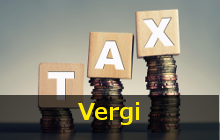
Taxation of e-athletes
Tamer Türkyılmaz
Digitalization has changed so many things in our lives. The global corporations’ way of doing business, tax administrations’ relationship with taxpayers, the communication of states with each other and their citizens and even the way individuals express themselves to the external world; the whole is impacted by the process of digitalization.
The concepts of sports and athletes are among those impacted by this wave of digitalization.
According to February 2019 data, the e-sports economy seems to have reached $ 1 billion in size and a growth of over 25% is performed compared to last year. It would not be right to think that an economy that has reached that size will not attract the attention of tax authorities. In this study, we briefly deal with how the e-athletes will be taxed in Turkey.
One of the important effects of digitalization is that it leads to confusion about the redefinition of traditional concepts. For an environment based on definitions and concepts, such as tax, such an impact can be considered significant. Because, there are some regulations that provide advantages to the athlete in implementations of taxes. Whether e-sport qualifies as sports or not is one of the issues discussed throughout the world, not only in Turkey.
The Revenue Administration, within its ruling in July 2019, indicated that e-athletes will not be considered athletes and will not benefit from the advantageous tax rates provided to athletes. With that attitude, it’s possible to say that the e-sports athletes will be taxed at source 2 to 5 times more compared to the traditional athletes. This approach of the Administration may also lead to confusion about the taxation of e-athletes, as well.
However, from the perspective of international taxation, since the commentary of OECD’s Model Tax Convention deals with the concept of athlete in details, in the presence of double taxation treaties, it is considered that e-athletes will need to be taxed as per the Article 17 of Model Tax Convention regulating the taxation of athletes.
Since the Administration does not consider e-sports as sports, we can say that a discussion may arise in terms of the income factor. Considering that people can do e-sports either as part of a team or individually, both cases will need to be assessed separately in terms of taxation.
It’s thought that the income acquired by persons who are part of a team, working under the orders and instructions of the team and receiving a monthly salary and a premium for league-tournament performance should be considered as wage income; however it is thought that the status of those who win prizes from tournaments by doing sports individually will need to be evaluated in terms of inheritance and inheritance tax, not income tax.
However, it should be kept in mind that e-athletes participating in international competitions are taxed in the country of residence due to the income they obtain through the world, but the countries where the income is obtained have the right to tax that income as source country. Therefore, as the Article 17 of the Model Tax Convention does not introduce a restrictive minimum number of day criteria for the taxation of income, e-athletes will need to try to comply with the tax rules of the country in which they generate income.
On the other side, issue of preventing double taxation may create problems for e-athletes performing internationally. Some countries’ applying different types of taxes to the income of e-athletes (eg income tax, inheritance and gift tax, etc.), crediting of different types of taxes from each other stands as a problematic issue.
It is known that e-athletes may earn income through sponsorship contracts, activities of being youtubers and gamers. We would like to point out that such revenues will need to be evaluated separately in terms of income type.
Explanations in this article reflect the writer's personal view on the matter. EY and/or Kuzey YMM ve Bağımsız Denetim A.Ş. disclaim any responsibility in respect of the information and explanations in the article. Please be advised to first receive professional assistance from the related experts before initiating an application regarding a specific matter, since the legislation is changed frequently and is open to different interpretations.










 Başa Dön
Başa Dön